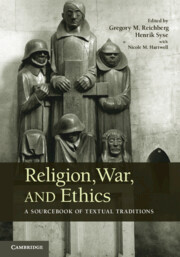Book contents
- Frontmatter
- Contents
- Notes on Contributors
- Preface
- Introduction
- 1 Judaism
- 2 Catholic Christianity
- 3 Eastern Orthodox Christianity
- 4 Protestant Christianity
- 5 Sunni Islam
- 6 Shi‘ite Islam
- 7 Hinduism
- 8 The Buddhist Traditions of South and Southeast Asia
- 9 Chinese and Korean Religious Traditions
- 10 The Religious Traditions of Japan
- 11 Sikh Tradition
- Index
- References
1 - Judaism
Published online by Cambridge University Press: 05 June 2014
- Frontmatter
- Contents
- Notes on Contributors
- Preface
- Introduction
- 1 Judaism
- 2 Catholic Christianity
- 3 Eastern Orthodox Christianity
- 4 Protestant Christianity
- 5 Sunni Islam
- 6 Shi‘ite Islam
- 7 Hinduism
- 8 The Buddhist Traditions of South and Southeast Asia
- 9 Chinese and Korean Religious Traditions
- 10 The Religious Traditions of Japan
- 11 Sikh Tradition
- Index
- References
Summary
Judaism, the oldest surviving monotheistic religion, traces its origins to the cultic practices and rites of ancient Israel. According to its scripture, the Tanakh, or Hebrew Bible, the nation of Israel consisted of descendants of the patriarch Abraham the Hebrew and was then led from bondage in Egypt to the land of Canaan by the prophet Moses to whom the Torah (Pentateuch), the Law, was revealed by God at Mount Sinai. Although relatively little is known about the development of its practices until 70 CE when the Second Temple in Jerusalem was destroyed by Rome, Ancient Judaism subsequently evolved into what is now known as Rabbinic Judaism whose oral and written traditions were eventually composed and redacted in the Mishnah (ca. 220 CE) and the Talmud (ca. 500 CE). The Tanakh, Mishnah, and Talmud remain the three core canonical texts of Jewish law, or halakhah, although they have been supplemented and enriched through the centuries by a wealth of later commentaries, codes, and legal compilations.
Introduction
The debate within Judaism regarding the ethics and conduct of war has always been a marginal one. Jewish attitudes toward issues of war in general and the ethics of war in particular were almost completely theoretical. The Jewish people, certainly since the second-century rebellion of Bar Kochba, were victims of war rather than agents of war. Without a state and an army, Jews, with a diaspora mentality, did not have the privilege or the need to articulate views on the ethics of war. Indeed, discussions of this issue throughout the centuries have been almost purely theoretical and not prescriptive, usually introduced as part of rabbinical interpretation of Biblical law.
- Type
- Chapter
- Information
- Religion, War, and EthicsA Sourcebook of Textual Traditions, pp. 8 - 75Publisher: Cambridge University PressPrint publication year: 2014
References
- 3
- Cited by

